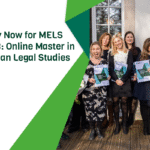The European Institute of Public Administration (EIPA) is collaborating with Enterprise Ireland on a multi-year capacity-building initiative designed to strengthen organisational capability in the application of EU State Aid rules. This collaboration responds to a clear strategic need within Enterprise Ireland to ensure that staff advising and supporting Irish companies in international markets have a robust, practical and up-to-date understanding of State Aid frameworks and their application in real investment and grant decisions.
As part of an organisational restructuring in early 2025, Enterprise Ireland recognised an opportunity to further develop and harmonise State Aid expertise among a cohort of experienced executives. The collaboration with EIPA is designed to accelerate competence, ensure consistency of approach, and enhance confidence in the practical application of State Aid across the organisation.
A Structured, Role-based Learning Approach
The programme is structured around two complementary courses, each tailored to distinct roles within Enterprise Ireland.
The State Aid Essentials course, equips Client Advisors managing company portfolios with a practical introduction to EU State Aid, de minimis, and key General Block Exemption Regulation (GBER) elements. It emphasises clarity, relevance, and immediate application to advisory work. Two sessions have been delivered so far, in October 2025 and January 2026, with further sessions planned as needed.
The State Aid Fundamentals course designed for Client Solutions Leads, Specialists, and Technologists handling complex grant and investment cases. It covers compatibility assessment, GBER methodology, R&D&I and regional aid, decarbonisation support under GBER and CEEAG, training aid, and de minimis. The course was delivered in October 2025 and January 2026, with potential for replication.
Customised Learning in State Aid
A key feature of the collaboration is its focus on applied learning. Both courses combine EU best practice with content customised to Enterprise Ireland, using team-based practical cases that mirror real investment and support decisions. This approach helps participants turn legal and policy principles into sound, defensible decisions.
The course framework was developed by EIPA, leveraging its public sector capacity-building experience.
Delivery is led by Barry Doherty, experienced in State Aid law, who has tailored the content to meet Enterprise Ireland’s specific needs, including the Irish national and regional State Aid context.
A Partnership Approach
The collaboration between EIPA and Enterprise Ireland reflects a shared commitment to building sustainable institutional capability. By strengthening understanding of EU State Aid at both advisory and specialist levels, the programme contributes to Enterprise Ireland’s wider mission of enabling Irish companies to grow, invest and succeed in international markets within a robust and compliant policy framework.


